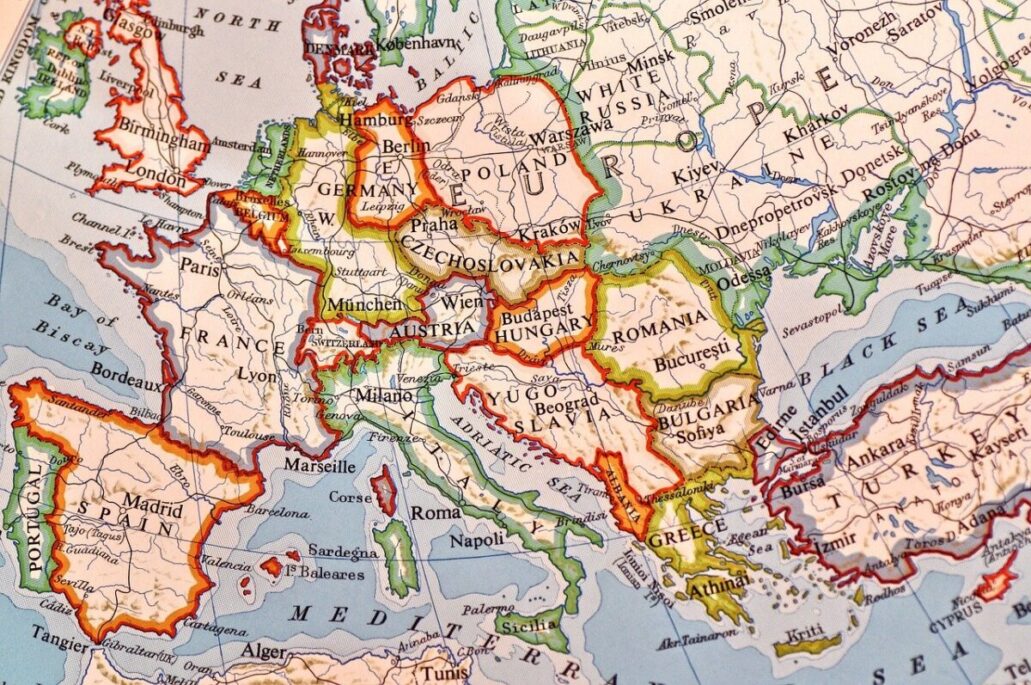Act according to the law, but destroy thousands of people or save them, but find yourself in the court room? It is a difficult choice for most people. Paul Gruninger died on February 22, 1972, almost penniless. His posthumous final rehabilitation took place in 1995. In 1938-1939, this man saved 3,610 Jews from Germany and Austria from death. Paul Gruninger was awarded the Righteous Among the Nations medal a year before his death.
Paul Gruninger did not participate in the Resistance – he was a simple employee of the Swiss border police, who deeply honored the charter of his department. Despite this, in August and September 1938, faced with the reality of thousands of exhausted and horrified people who were deprived of everything and left in front of closed borders, Paul Gruninger neglected his official duty. Instead of detaining the refugees and sending them back, Paul, with the help of several subordinates, began to forge the entry documents of the Jews.
Paul Gruninger was born on October 27, 1891 in Saint Gallen (Switzerland). He served in the Swiss army during the First World War. Then Lieutenant Gruninger became a policeman in his native canton. In 1925, he was promoted to the rank of captain and the position of chief of police.
Paul had public authority: he was elected president of the Swiss Police Association. Actively participated in the activities of the association for the protection of animal rights. He liked football. In 1938, Grüninger served at the St. Gallen checkpoint in the ranks of the Swiss border police.
Help for Austrian and German Jews
After the Anschluss of Austria in March 1938 and the tightening of attitudes towards Jews in Germany, many exhausted and frightened people rushed to neutral and prosperous Switzerland. They had lost everything: home, job, faith in democracy and in social justice, relatives and friends. But already in August, the Swiss government announced that it would stop accepting emigrants from Germany and Austria.
Thus, many Jews, gypsies, political opponents of Hitler and people who hate Nazism were doomed to destruction. Gruninger was not a member of the resistance movement and, as a policeman with many years of experience, respected the charter of his department and the laws of the country. Desperate people, for whom the civilized world soullessly closed the borders, touched his heart. Humanity and compassion for one’s neighbor took precedence over the desire to follow the letter of the law. Paul Gruninger did not detain the refugees and deport them back to their inevitable death.
On the contrary, with the help of several subordinates, he forged the entry documents of Jews, putting down the date of entry in their passports retroactively (before the closure of the border). Refugees not only ended up in peaceful Switzerland, but also received an official status that guaranteed their safety.
Captain Gruninger risked his official position, well-being and life. He refused the money and rewards: his actions were dictated by altruism. His actions, which were later regarded by the court as “disobedience to the call of duty”, saved almost four thousand lives.
The Swiss authorities and the Gestapo suspected something was wrong by the beginning of 1939, because the number of people who passed through the St. Gallen checkpoint was huge. A close friend who worked at the Austrian border post warned Gruninger that the Gestapo was interested in him. But Paul did not stop. He could not stop saving people who were doomed to extermination.
At the suggestion of Germany, the Swiss police conducted an internal investigation, which found that Gruninger and his subordinates were engaged in “illegal activities.” Colleagues were not injured, as they acted on the “criminal order” of the chief.
The captain himself was treated much tougher – he was fired from service without the right to receive a pension and a criminal case was opened. In 1940, he had to pay a hefty fine for “forgery of documents and illegal activities.” And soon, a humiliating trial began.
Righteous Among the Nations on trial
At his trial in October 1940, Grüninger was defended by a state-provided lawyer, known to be a staunch anti-Semite who professed sympathy for Hitler and Nazism. The line of defense looked like a farce.
Although the verdict was a foregone conclusion, attempts to declare the captain crazy and corrupt, violating the law because of his own greed, were unsuccessful. On December 22, 1942, he was found guilty of fraud and dereliction of duty and sentenced to imprisonment.
Paul did not deny his guilt, but in his closing speech he noted that he was motivated to break the law by compassion for the persecuted people. He declined to file an appeal. After serving a prison term, the life of the Righteous Among the Nations did not improve. He could not get a permanent job and had to survive with odd jobs. In 1972 he died in dire need.
Rehabilitation and perpetuation of memory
The fate of Paul Grüninger caused outrage and indignation of the people saved by him and in their descendants. They founded the association “Justice for Paul Gruninger”, which fought for many years to recognize his merits and restore his good name.
It is symbolic that in 1995, in the same courtroom where the brave man was convicted for his altruism, a new court session was held. Switzerland admitted its mistake and the police captain was rehabilitated posthumously.
“He (Paul Gruninger) put moral values above job responsibilities, commitment to humanism was for him above career, social status and personal well-being,” said Swiss Economy Minister Johann Schneider-Ammann in a speech in Israel in 2017. The minister also acknowledged that “the restrictive policy of the then Swiss authorities between 1938 and 1942, aimed at limiting the number of refugees admitted by Switzerland, was probably the blackest moment in our entire history.”
The Jewish people thanked their friend much earlier. Back in 1971, the Jerusalem Institute of Yad Vashem awarded him the honorary medal “Righteous Among the Nations”. Streets in the northern district of Jerusalem and Rishon LeZion are named after Grüninger.
Source: Пауль Грюнингер. История забытого героя, который спас 3600 евреев | Статьи на inVictory






